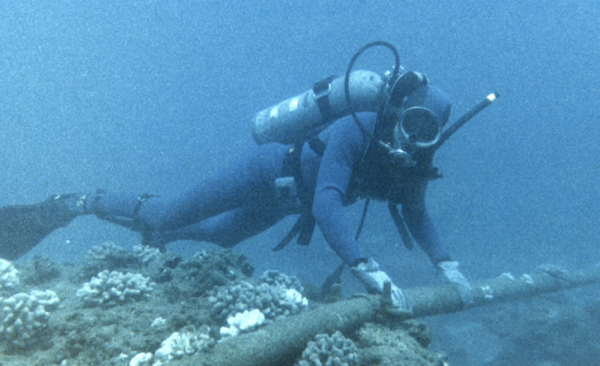The 2024 NordForsk Impact Report highlights the significant strides made in Nordic research collaboration, with an emphasis on active projects. This year’s report records a substantial increase in participation, with a 91.2% response rate from active projects, offering a comprehensive overview of their outcomes and impacts. A major methodological shift is the exclusive focus on active projects, acknowledging the challenge of capturing long-term impacts after project completion.
NordForsk’s impact measurement has evolved, with streamlined data workflows feeding into an open-access impact dashboard, enabling efficient analysis. The report underscores the diverse approaches to impact measurement across Nordic research councils, advocating for standardization and harmonization. Additionally, the report includes qualitative impact stories, which provide a narrative context to the quantitative data, illustrating the real-world effects of high-impact projects.
NordForsk-funded projects exhibit significant Nordic added value across 11 strategic categories, enhancing scientific quality, fostering regional mobility and networking, and building critical mass and expertise. These projects also show a high rate of securing further funding, demonstrating the sustainability and excellence of the research collaborations. Read more about Nordic added value at nordforsk.org.
The report also highlights the policy influence of NordForsk-funded research, with 193 unique policy influences reported, spanning local, national, and international levels. Notable policy impacts include contributions to national consultations, improved regulatory environments, and enhanced public services.
Dissemination activities are another critical aspect, with projects engaging in over 2,600 unique dissemination efforts, reaching diverse audiences including the public, policymakers, and industry stakeholders. These activities have led to increased requests for further information and participation, as well as changes in public opinion and behaviour.
The 2024 NordForsk Impact Report not only demonstrates the immediate and ongoing impact of Nordic research but also sets the stage for future developments, emphasizing the importance of continued collaboration, innovation, and impact measurement in the Nordic region.
Some key points:
- High Participation: 91.2% response rate from active projects.
- Methodological Shift: Focus on active projects; challenges in capturing long-term impacts acknowledged.
- Impact Measurement: Streamlined data workflows; open-access impact dashboard.
- Qualitative Stories: Narrative context added to quantitative data.
- Nordic Added Value: Enhancing scientific quality, fostering mobility, building expertise.
- Further Funding: High success rate in securing additional funding.
- Policy Influence: 193 unique policy influences across multiple levels.
- Dissemination Activities: Over 2,600 unique efforts; broad audience engagement.
- Outlook: Continued focus on collaboration, innovation, and impact measurement.
Notable projects are:
Gut Health Discovery by Umeå University
This project, led by Umeå University in collaboration with researchers from Germany and Finland, made a groundbreaking discovery regarding the bacterium Blautia and its role in maintaining gut health. The research focused on individuals consuming a low-fiber Western diet, where they found that Blautia helps preserve the integrity of the intestinal mucus barrier, which is crucial for preventing gut-related diseases. This study not only advanced the understanding of gut health but also influenced dietary recommendations and treatments for conditions like ulcerative colitis. The findings have been well-received in the medical community, supporting the emphasis on dietary fibers and beneficial gut bacteria in maintaining gut health.
NordStar Project on Rheumatoid Arthritis
Led by Merete Lund Hetland at the University of Copenhagen, the NordStar project conducted the world’s largest trial comparing the efficacy of three biological drugs and one conventional medicine in treating rheumatoid arthritis. The study demonstrated high remission rates with the biological treatments and was published in the British Medical Journal. The results have been incorporated into European guidelines for rheumatoid arthritis treatment, influencing the standard of care across Europe. This project has significantly improved the understanding of effective treatments for rheumatoid arthritis, potentially enhancing patient outcomes and quality of life on a broad scale.
Sustainable Aquaculture Innovations by Chalmers University of Technology
Researchers at Chalmers University, led by Professor Oskar Modin, in partnership with Tampere University and the Danish Technology Institute, addressed the challenge of poor taste and odour in salmon raised in land-based aquaculture systems. The problem, often described as a “muddy soil” taste, was traced to specific bacteria. The team explored innovative bioelectrochemical systems to eliminate these odorous compounds and developed a sensor to detect them directly in the water. Their research could revolutionize fish farming by reducing water usage, preventing weight loss in salmon during detox periods, and making the industry more environmentally friendly and economically viable. The findings have garnered significant interest from industry partners.
Sustainable Textiles Development by Aalto University
Nordic researchers, led by Jaana Vapaavuori from Aalto University, pioneered the creation of sustainable textile prototypes using materials such as lupin yarn and potato starch. These innovative materials were showcased in various exhibitions across the Nordic region and at a major conference in London. The project not only demonstrated the potential of these eco-friendly materials to industry stakeholders and the public but also influenced educational practices. Notably, these materials have been incorporated into needlework curriculums in Finnish schools. The project aligns with the European Commission’s new sustainability criteria and contributes to reducing the environmental impact of the global textile industry, paving the way for a more sustainable production paradigm.

The 2024 NordForsk Impact Report showcases the significant achievements of Nordic research collaborations, highlighting increased project participation and methodological advancements in impact measurement. The report emphasizes the qualitative and quantitative impacts of key projects across various fields, alongside the substantial policy influence and successful dissemination efforts. NordForsk remains committed to enhancing research impact, fostering collaboration, and driving innovation in the Nordic region.
Source: https://www.nordforsk.org/2024/nordforsk-impact-report-2024
Photo by Tim Sullivan on StockSnap




